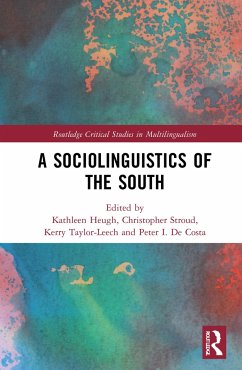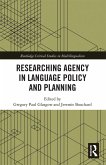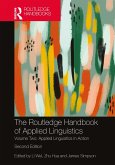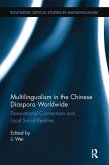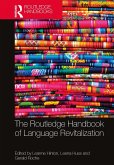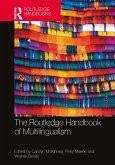This book brings to life initiatives among scholars of the south and north to understand better the intelligences and pluralities of multilingualisms in southern communities and spaces of decoloniality.
Chapters follow a longue durée perspective of human co-existence with communal presents, pasts, and futures; attachments to place; and insights into how multilingualisms emerge, circulate, and alter over time. Each chapter, informed by the authors' experiences living and working among southern communities, illustrates nuances in ideas of south and southern, tracing (dis-/inter-) connected discourses in vastly different geopolitical contexts. Authors reflect on the roots, routes and ecologies of linguistic and epistemic heterogeneity while remembering the sociolinguistic knowledge and practices of those who have gone before. The book re-examines the appropriacy of how theories, policies, and methodologies 'for multilingual contexts' are transported across different settings and underscores the ethics of research practice and reversal of centre and periphery perspectives through careful listening and conversation.
Highlighting the potential of a southern sociolinguistics to articulate a new humanity and more ethical world in registers of care, hope, and love, this volume contributes to new directions in critical and decolonial studies of multilingualism, and to re-imagining sociolinguistics, cultural studies, and applied linguistics more broadly.
Chapters follow a longue durée perspective of human co-existence with communal presents, pasts, and futures; attachments to place; and insights into how multilingualisms emerge, circulate, and alter over time. Each chapter, informed by the authors' experiences living and working among southern communities, illustrates nuances in ideas of south and southern, tracing (dis-/inter-) connected discourses in vastly different geopolitical contexts. Authors reflect on the roots, routes and ecologies of linguistic and epistemic heterogeneity while remembering the sociolinguistic knowledge and practices of those who have gone before. The book re-examines the appropriacy of how theories, policies, and methodologies 'for multilingual contexts' are transported across different settings and underscores the ethics of research practice and reversal of centre and periphery perspectives through careful listening and conversation.
Highlighting the potential of a southern sociolinguistics to articulate a new humanity and more ethical world in registers of care, hope, and love, this volume contributes to new directions in critical and decolonial studies of multilingualism, and to re-imagining sociolinguistics, cultural studies, and applied linguistics more broadly.
"In A Sociolinguistics of the South, an exciting range of authors from both the global South and the global North address two key questions: Where is "the South" in sociolinguistics? What might a "sociolinguistics of the South" comprise? Readers who seek a richer understanding of decoloniality, southern multilingualisms, and the sociolinguistic methods of the South, will find the collection both compelling and visionary. Editors Heugh, Stroud, Taylor-Leech and de Costa have made a timely and important contribution to debates on power and possibility in contemporary sociolinguistics." - Professor Bonny Norton (FRSC), University of British Columbia
"This remarkable volume offers new routes for thinking with and from the epistemic South. Engaging ethically and critically with alternative histories, practices, and understandings of multilingualism, it advances a more pluriversal, expansive and invigorating socio- and applied linguistics." - Professor Caroline Kerfoot, Stockholm University
"An insightful and much needed engagement with multilingualism in the plural from the perspective of a sociolinguistics of the south. It substantially takes on the difficult dialogue with northern perspectives and reconfigures the epistemic line between what is commonly perceived as Northern transparency and Southern opacity." - Professor Lynn Mario T. Menezes de Souza, University of São Paulo
"This book unfolds a refreshing perspective on language as constitutive of our humanity /(being human). The contributors note the 'irrepressible creativity and communality of care and love' of the fluid multilingual societies of the South focusing on their decoloniality and 'linguistic and epistemic heterogeneity'. In so doing, the authors re-examine the appropriacy of how theories and methodologies for multilingual contexts can cut across boundaries of the South and North reversing the centre and periphery patterns of domination." - Emeritus Professor Rama Kant Agnihotri, University of Delhi
"This timely and important volume breaks new ground by articulating a 'sociolinguistics of the south' as an experiential, theoretical and cosmological project. Foregrounding a decolonial politics of care, love and hope, the contributors think with - and work through - diverse temporalities and spatialities, imagining and creating a sociolinguistics that is not simply scholarly and political, but also ethical." - Professor Ana Deumert, University of Cape Town
"This timely collection of chapters helps to [...] provid[e] a comprehensive illustration of the methodological underpinnings of decolonial sociolinguistic inquiry and critical theorising through an anti-colonialist lens." - Ahmed Sahlane, University of Jeddah, ELI Jeddah
"This remarkable volume offers new routes for thinking with and from the epistemic South. Engaging ethically and critically with alternative histories, practices, and understandings of multilingualism, it advances a more pluriversal, expansive and invigorating socio- and applied linguistics." - Professor Caroline Kerfoot, Stockholm University
"An insightful and much needed engagement with multilingualism in the plural from the perspective of a sociolinguistics of the south. It substantially takes on the difficult dialogue with northern perspectives and reconfigures the epistemic line between what is commonly perceived as Northern transparency and Southern opacity." - Professor Lynn Mario T. Menezes de Souza, University of São Paulo
"This book unfolds a refreshing perspective on language as constitutive of our humanity /(being human). The contributors note the 'irrepressible creativity and communality of care and love' of the fluid multilingual societies of the South focusing on their decoloniality and 'linguistic and epistemic heterogeneity'. In so doing, the authors re-examine the appropriacy of how theories and methodologies for multilingual contexts can cut across boundaries of the South and North reversing the centre and periphery patterns of domination." - Emeritus Professor Rama Kant Agnihotri, University of Delhi
"This timely and important volume breaks new ground by articulating a 'sociolinguistics of the south' as an experiential, theoretical and cosmological project. Foregrounding a decolonial politics of care, love and hope, the contributors think with - and work through - diverse temporalities and spatialities, imagining and creating a sociolinguistics that is not simply scholarly and political, but also ethical." - Professor Ana Deumert, University of Cape Town
"This timely collection of chapters helps to [...] provid[e] a comprehensive illustration of the methodological underpinnings of decolonial sociolinguistic inquiry and critical theorising through an anti-colonialist lens." - Ahmed Sahlane, University of Jeddah, ELI Jeddah

